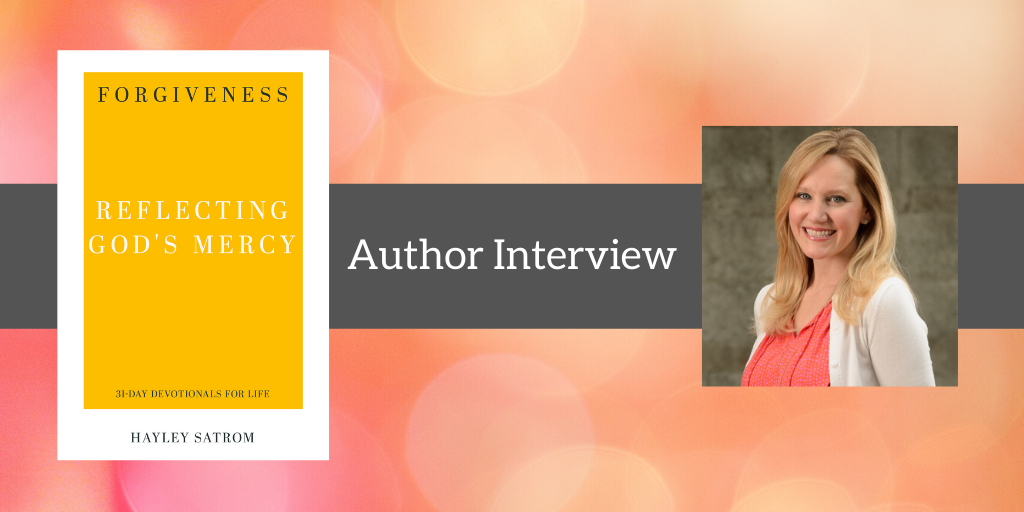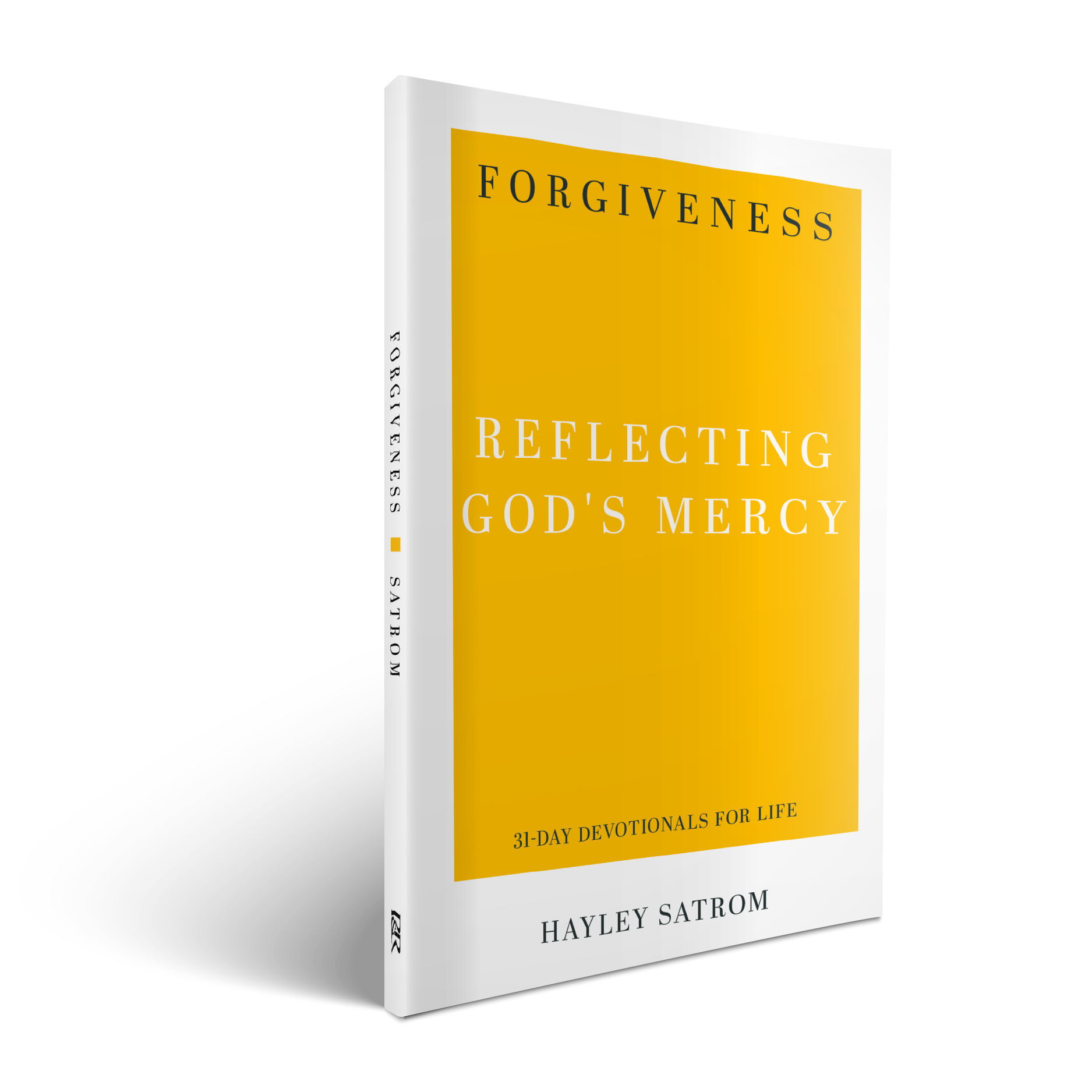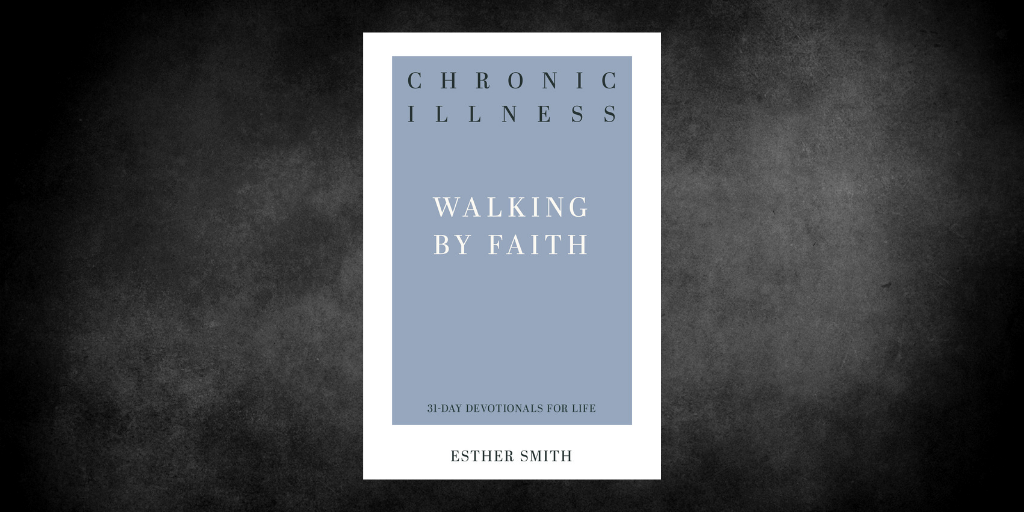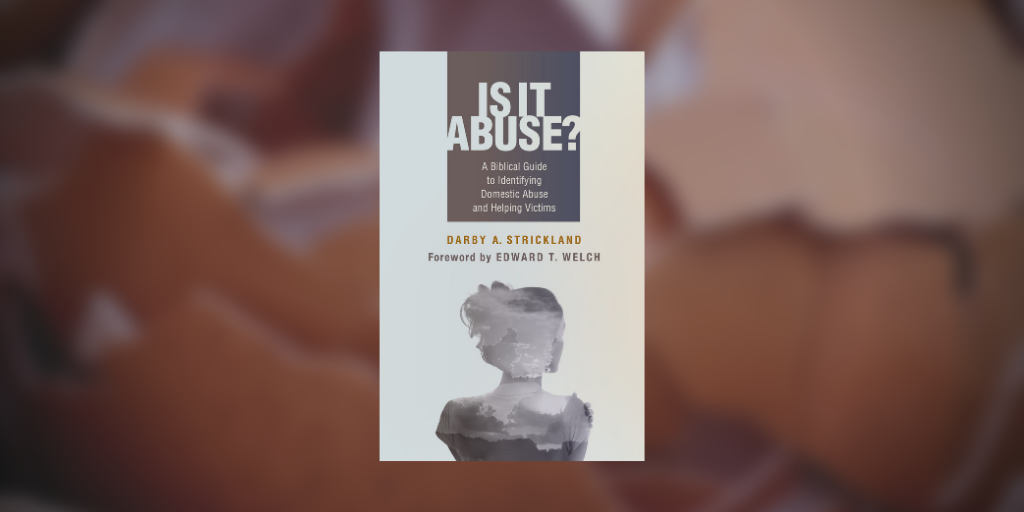WE ARE VERY EXCITED TO BE RELEASING THESE 3 NEW TITLES TODAY:
- The Mystery of the Trinity: A Trinitarian Approach to the Attributes of God by Vern S. Poythress
- A Painful Past: Healing and Moving Forward by Lauren Whitman
- Forgiveness: Reflecting God’s Mercy by Hayley Satrom
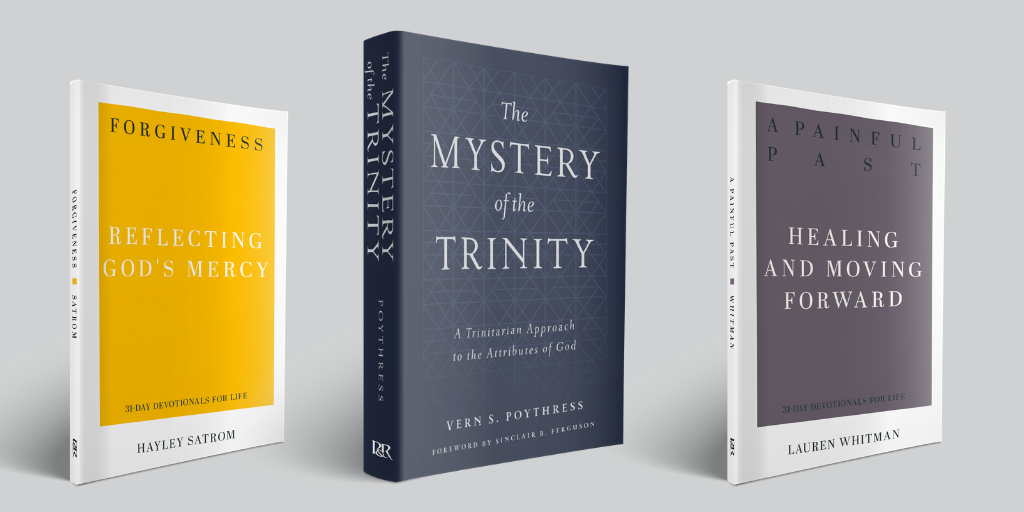
The Mystery of the Trinity: A Trinitarian Approach to the Attributes of God by Vern S. Poythress
728 pages | Hardcover | P&R Direct Price: $49.99 $34.50 | SAMPLE CHAPTER | Mobi: $39.99 | ePub: $39.99
About
Starting with the doctrine of the Trinity, Vern Poythress addresses six challenges concerning the compatibility of God’s independence with his activities in the world. The eternal activities among the persons of the Trinity offer a foundation for God’s activities in the world. Alternative metaphysical frameworks for explaining God’s transcendence and immanence run the danger of overriding the truths of biblical revelation.
Endorsements
“This book is a valiant and thought-provoking attempt to approach the attributes of God through the doctrine of the Trinity. . . . While broadly endorsing the classical doctrine of God, [Poythress] is suspicious of our reliance on well-defined technical terms that are required to do our work for us. He wants us to abandon our implicit reliance on Aristotelian metaphysics in favor of the shaping power of the mystery of the Trinity. . . . In the hands of Poythress, this becomes an appeal to become more robustly biblical, not less. This book is truly transforming—a capstone to all that Vern Poythress has taught us over the last two or three decades. Read it slowly and carefully.”
—D. A. Carson, Emeritus Professor of New Testament, Trinity Evangelical Divinity School
“Dr. Poythress applies his deep knowledge of Scripture, his well-informed knowledge of historical theology, and his brilliant mind to some of the most difficult controversies in the theology of the divine attributes.”
—Philip Graham Ryken, President, Wheaton College
“A stimulating and fascinating book. . . . Poythress raises important questions that need addressing and offers many incisive and challenging insights.”
—Robert Letham, Professor of Systematic and Historical Theology, Union School of Theology
“The challenge for our speaking about who God is . . . is to speak of the sublimely majestic mysteries involved in a biblically bounded way. . . . In this volume, Dr. Poythress meets this challenge in an exemplary and most helpful way. I commend it.”
—Richard B. Gaffin Jr., Professor of Biblical and Systematic Theology, Emeritus, Westminster Theological Seminary
A Painful Past: Healing and Moving Forward by Lauren Whitman
96 Pages | 31-Day Devotionals for Life series | P&R Direct Price: $7.50 | SAMPLE CHAPTER
About
Do you live with regret? Have others sinned terribly against you? If it has been hard for you to recover from events in your past, the possibility that you could live well in the present may seem far-fetched. If you feel trapped by your past, God invites you to pour out your heart to him and to find comfort in his Word. In this 31-day devotional, complete with reflection questions and practical action steps, biblical counselor Lauren Whitman shows how the gospel transforms your understanding of the past, your life in the present, and your hope for the future.

Endorsements
“If you’ve ever experienced pain from your past, come and let these words comfort you. Come and soak up the grace given to you in this devotional.”
—Julie Lowe, Faculty and Counselor, Christian Counseling & Educational Foundation
“This has well-known Scripture, songs, and hymns that will surprise you in the best possible way. The pace anticipates and answers questions you have. By Day 3, Lauren was anticipating questions I barely even knew I had, and each Scripture and song landed in my soul.”
—Edward T. Welch, Faculty and Counselor, Christian Counseling & Educational Foundation; Author, Created to Draw Near and Shame Interrupted
“With deft writing and a delicate touch, Lauren turns her years of counseling experience toward your past with thirty-one days of truth, care, reflection, and application.”
—Dave Harvey, President, Great Commission Collective
“Hurting hearts will find help here. Each day Lauren tenderly encourages you to consider how Jesus comforts the pains of your past and how he lovingly secures a new and better story for your present and future.”
—Darby A. Strickland, Counselor, Christian Counseling & Educational Foundation
“A daily touch point with the Bible that brings hope in bite-sized pieces. I believe you will walk away with two powerful messages: ‘You are not alone’ and ‘There is hope.’”
—Brad Hambrick, Pastor of Counseling, The Summit Church, Durham, North Carolina
Forgiveness: Reflecting God’s Mercy by Hayley Satrom
104 Pages | 31-Day Devotionals for Life series | P&R Direct Price: $7.50 | SAMPLE CHAPTER
About
Are you struggling to forgive someone—or multiple people—who have deeply hurt you? Do you frequently feel bitter or offended? When the sin of the people around us looms large in our minds, we need to look to God. His great love is not only an encouragement amid our pain but also the foundation on which we build true forgiveness for others. In this 31-day devotional, through readings, reflection questions, and action points, biblical counselor Hayley Satrom turns us to Scripture to see the grace and mercy that God daily pours out on us despite our sins against him—then shows us how to forgive others in practical terms.

Endorsements
“Hayley Satrom is a gifted communicator who tackles the sensitive topic of biblical forgiveness in a clear, loving, and practical way.”
—Joanne Owens, Director of Care and Counseling, Immanuel Bible Church, Springfield, Virginia
“By helping us to experience God’s grace, Hayley encourages and empowers us to give Christ’s grace to others. Though this is a brief devotional, it is packed with theological truth applied to real life.”
—Bob Kellemen, Author, Gospel-Centered Marriage Counseling: An Equipping Guide for Pastors and Counselors
“Handles a difficult subject with grace and truth. I believe this devotional will really help those struggling with forgiveness, and I heartily endorse [it]!”
—Julie Ganschow, Author, Seeing Depression through the Eyes of Grace; Director, Reigning Grace Counseling Center
“Hayley’s devotional will help to deliver you from the rising tide of touchiness that is dragging even the church into bitterness. Let Jesus bless you through Hayley!”
—Paul Miller, Executive Director, seeJesus; Author, A Praying Life

